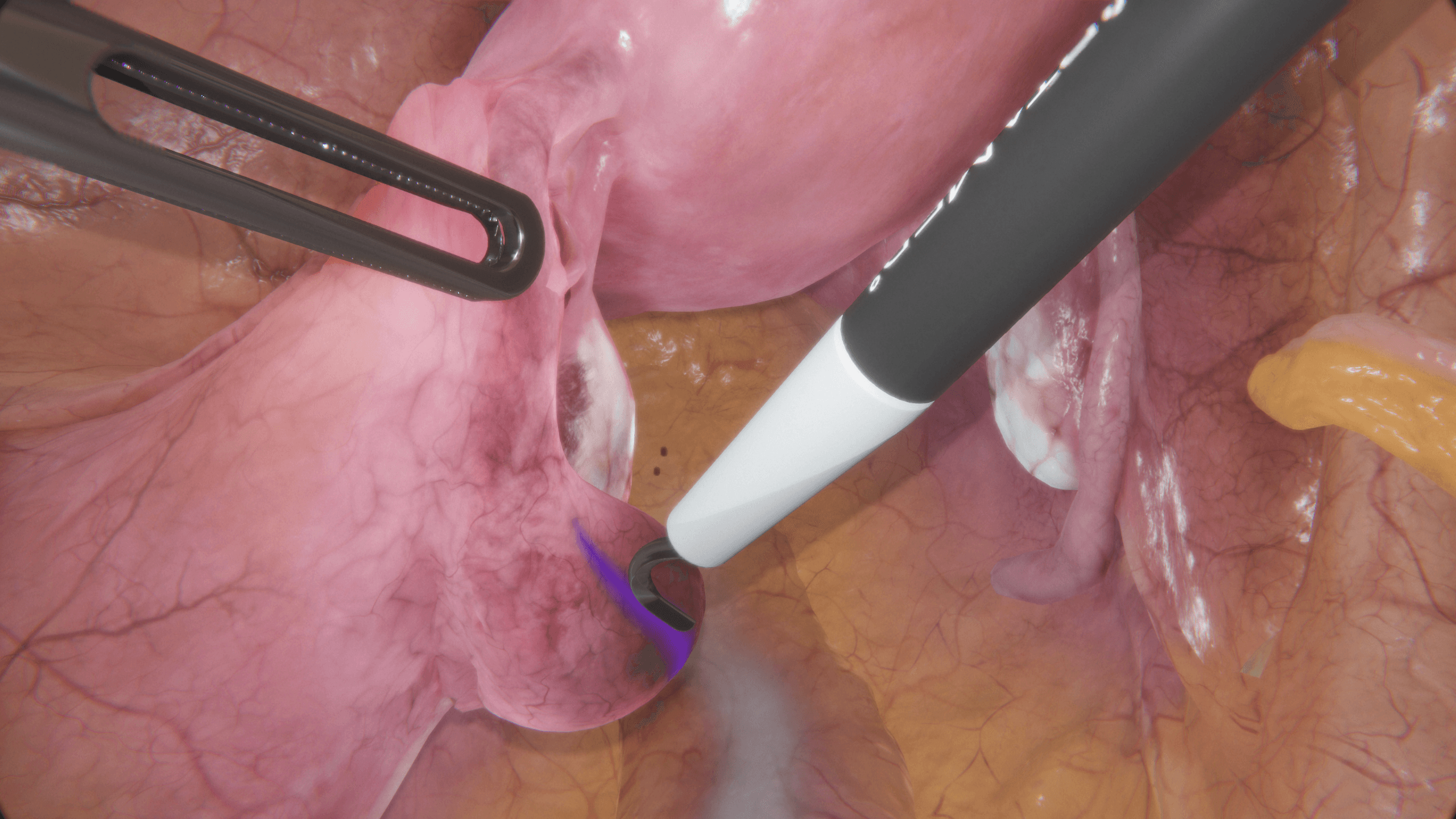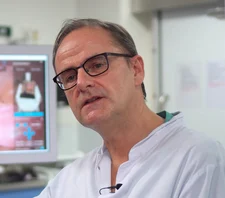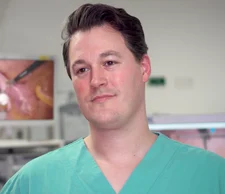
Tübingen University Hospital on VirtaMed Gynecological Laparoscopy Simulation: Enabling Systematic Structured Education
| Author | Milena Zegarac |
|---|
We asked experts from the Women's Health Clinic at Tübingen University Hospital in Germany, one of the leading centers of excellence collaborating with VirtaMed on LaparoS™ development, to share their impressions on the value that the mixed reality simulator brings to training and education of gynecology residents.
The Women's Health Clinic has been cooperating on equipping LaparoS™ with the most valuable training content since the very beginning of the gynecological laparoscopy module development. Collaboration started in 2020 when KARL STORZ provided their laparoscopic simulator developed in collaboration with VirtaMed to the Women's Health Clinic. The simulator has ever since been actively used for reviewing anatomies and different stages of training, as well as testing the training cases in courses with their residents. The feedback provided, combined with on-site visits by VirtaMed to attend some of the crucial surgeries, has played an important role in achieving the high realism and quality of gynecological laparoscopy training that LaparoS™ offers today.
 Dr. med. Christian Gall, Senior Physician and Lead of Surgical Simulation and Training at the Women’s Health Clinic at Tübingen University Hospital, finds it exciting that the VirtaMed laparoscopic training opens doors for more opportunities to master gynecological skills: “Looking back at training when I was trained and educated in gynecology and nowadays, today there is the opportunity to have a systematic, objective training on a standardized simulator and it is the maximum benefit you can have.”
Dr. med. Christian Gall, Senior Physician and Lead of Surgical Simulation and Training at the Women’s Health Clinic at Tübingen University Hospital, finds it exciting that the VirtaMed laparoscopic training opens doors for more opportunities to master gynecological skills: “Looking back at training when I was trained and educated in gynecology and nowadays, today there is the opportunity to have a systematic, objective training on a standardized simulator and it is the maximum benefit you can have.”
He remarks that training with such a simulator allows to avoid potential biases in evaluation: “You can train your young colleagues in an atmosphere without stress, where you have the opportunity to check how is their training level and their training skills. It makes it objective to yourself, to the trainee as well to the department that is responsible for education.”
Dr. Gall further points out the structured modular system: “You start with easy training like hand-camera coordination and clipping, then master easy and typical gynecological operations, and then go to the more difficult cases like salpingectomy, adnexectomy or cyst extirpation. This is a very good tool for systematic structured education.”
 Dr. med. Felix Neis, Deputy Chief Physician at the Women’s Health Clinic at Tübingen University Hospital, highlights the realism of the simulator: “Now we have got the possibility to really touch things, to move things inside the abdomen, with real instruments that we also use in our OR.”
Dr. med. Felix Neis, Deputy Chief Physician at the Women’s Health Clinic at Tübingen University Hospital, highlights the realism of the simulator: “Now we have got the possibility to really touch things, to move things inside the abdomen, with real instruments that we also use in our OR.”
Like Dr. Gall, Dr. Neis also acknowledges the stress-free learning environment: “We can train and we can do mistakes by using the simulator, and we can do it in a relaxed environment where we can stop, we can do procedures back again, and that is one great benefit.” From his perspective, another important benefit is the possibility to train emergency situations and learn to handle complications, such as damage of the vessels or cutting into the bowel. “We can train those things without the need to experience it in real life, and we can train what to do if it happens,” he notes.
We are excited to continue collaboration with the Women's Health Clinic at Tübingen University Hospital and further deliver innovative gynecological training cases based on their valuable medical inputs.